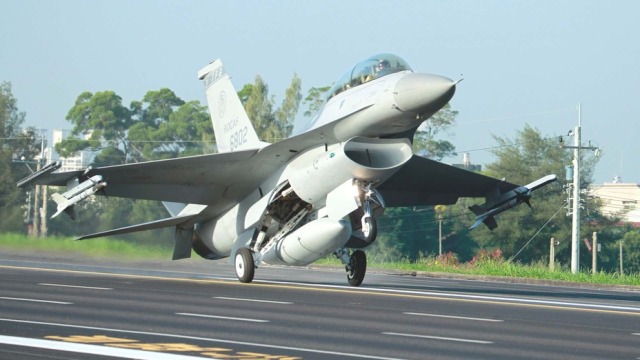TSAMTO, April 18. The problems associated with the pandemic have led to the fact that the United States is delaying the delivery of military equipment to Taiwan in the amount of $ 14.2 billion, which was ordered in the period starting from 2019.
Since the US administration is currently prioritizing organizing the flow of military aid to Ukraine, some US lawmakers are concerned that the delay in supplies to Taiwan undermines its ability to deter potential aggression from China.
Steve Chabot, a member of the US House of Representatives, told Defense News that the Foreign Affairs Committee held a meeting last week to discuss the backlog of projects from the schedule.
At the disposal of Defense News received a list of VIVT, the delivery of which is behind schedule. It included deliveries of 66 F-16 fighters worth $ 8 billion, as well as a replacement program for components with expiring Patriot air defense systems in the amount of $ 620 million.
The list of supplies also includes compact "asymmetric weapons systems", which, according to Washington, will be useful for deterring and preventing a Chinese invasion. Among them are named: MANPADS "Stinger", heavy torpedoes, MLRS, howitzers "Paladin", container reconnaissance systems MS-110 and communications, coastal defense systems based on the PKR "Harpoon" Block.2 in the amount of $2.37 billion and UR SLAM-ER in the amount of $1 billion.
At the moment, the cost of lagging behind schedule programs is $ 14.2 billion, with a total amount of orders since July 2019 of $ 17 billion. Neither the Ministry of Defense nor Taiwan's diplomatic mission in Washington responded to Defense News' request for comment on the backlog of programs from the schedule.
According to a number of experts, the US industry links the problem of the backlog of VIVT supplies from the schedule with the disruption of supply chains, staff shortages and delivery delays due to COVID-19.
At the same time, US representatives continue to urge Taiwan to make large purchases of cheaper asymmetric weapons systems, instead of smaller batches of more expensive modern weapons that China can quickly disable during an "invasion".
Republican Senator from Idaho James Risch, a member of the Senate Foreign Relations Committee, introduced a bill providing for the provision of $2 billion in military aid to Taiwan annually. in the event that Taipei develops long-term plans for the development of combat potential together with the United States.
Another bill, introduced by Missouri Senator Josh Hawley, provides for the annual provision of $3 billion in military aid to Taiwan. The bill contains clearer requirements stipulating that the funding will be directed to the development of Taipei's asymmetric defensive capabilities against China.

